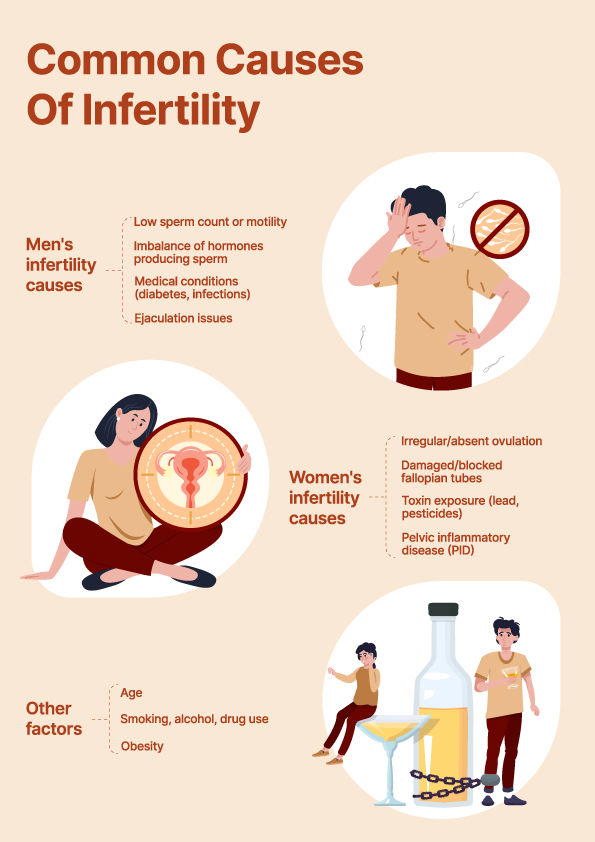To understand why masturbation doesn't affect fertility, let's understand how the female reproductive cycle works. The menstrual cycle is a complex system influenced by various biological processes.
Impact of Masturbation on Ovulation and the Menstrual Cycle
Ovulation is an important milestone in the menstrual cycle. It’s the process by which an egg is alternately released from one of the ovaries each month.
The egg then travels through the fallopian tubes, where it waits to be fertilised by sperm, potentially leading to pregnancy. If fertilisation doesn't occur, the body sheds the uterine lining through menstruation, and the cycle begins over.
Regular ovulation is the most important factor for fertility, and despite myths suggesting otherwise, female masturbation does not affect ovulation or disrupt the menstrual cycle.
When a woman masturbates and reaches orgasm, her body releases hormones that help reduce stress and promote relaxation. These hormones include:
Oxytocin: Often called the "love hormone," oxytocin plays a key role in bonding, sexual arousal, romantic attachment and trust. It is released when a woman reaches an orgasm.
Endorphins: Known for their stress-reducing effects, endorphins help the body relax and can also help you fall asleep.
Dopamine: This "feel-good" neurotransmitter is linked to pleasure and improves mood, contributing to a general sense of well-being.
However, while these hormones are released during masturbation, they do not impact female fertility.
No Scientific Evidence Linking Masturbation to Infertility
Despite common myths, there is no scientific evidence to suggest that female masturbation has any impact on fertility.
Research suggests masturbation is a healthy part of sexual development that contributes to improved sexual health. It also promotes relational intimacy and helps reduce the risks of unwanted pregnancy, STIs, and HIV transmission.
So, if masturbation doesn’t affect fertility, what does? Let’s explore!
Factors that influence fertility in women
The ability to conceive depends on multiple factors beyond just sexual activity. According to the Indian Council of Medical Research (ICMR), factors such as age, hormonal imbalances, lifestyle choices (like diet and physical activity), stress and underlying medical conditions all impact fertility.
But here’s the good news: masturbation doesn’t affect any of these important factors. So, there’s no need to worry—it doesn’t interfere with your chances of having a baby in the future.
No scientific evidence linking masturbation to infertility
Despite common myths, there is no scientific evidence to suggest that female masturbation has any impact on fertility. Masturbation does not interfere with the menstrual cycle, ovulation, or the health of reproductive organs.
In fact, sexual activity in general—including masturbation—can promote overall sexual health by reducing stress and increasing self-awareness of the body. It is a completely safe and natural activity that does not lead to infertility.


